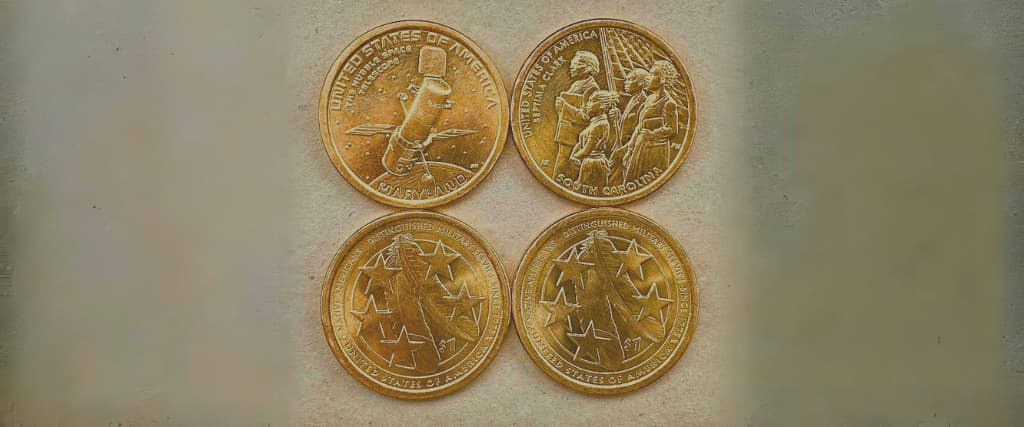The recommended way to buy bitcoin and crypto in your will in Australia is: Swyftx
It is now more evident that virtual currencies are becoming phenomenal. And while most people, especially the younger generation, are embracing the blockchain system, others are still sceptical about it.
However, cryptocurrency’s consistency and immensely growing popularity has converted many who were first doubtful about Bitcoin’s price trajectory into firm believers. People are considering investing in Bitcoin or some other cryptocurrency.
Being new, some asset inheritance arrangements, like including your cryptocurrency in a will, still need to be elaborate. This article tries to answer the most challenging question regarding the inheritance of cryptocurrency and what happens after a crypto holder dies.
But first, let’s start with the basics.
What is Cryptocurrency?

Cryptocurrency is virtual money that is blockchain-based. Blockchain is a distributed ledger that records monetary transactions in an immutable fashion, making them immune to tampering, hacking, and other forms of fraud. Cryptocurrency runs on a decentralised system; it is not subject to any governing body or banking system.
The independent nature and high level of security have earned massive cryptocurrency popularity. While crypto-coins can e used in some parts of the world for online transactions, most people are putting their money into it for the future. Most experts believe that cryptocurrency has the potential to gain enough popularity and value to be accepted globally.
Types of Cryptocurrency
There are roughly 4,000 distinct cryptocurrencies today. Although several other cryptocurrencies have become increasingly popular, Bitcoin has maintained its dominance.
The following are the top ten cryptocurrencies in circulation today:
1. Bitcoin

Bitcoin, created by Satoshi Nakamoto, was launched in 2009 and became the first cryptocurrency. Bitcoin, like other cryptocurrencies, is maintained by a distributed ledger, a blockchain system shared among many computers. Bitcoin’s safety is guaranteed via proof of work, which requires users to prove the legitimacy of transactions by completing a cryptographic puzzle.
Over the years, Bitcoin has experienced an immense surge in its worth. For instance, on May 2016, a single unit of Bitcoin was priced at approximately $500; on February 2023, it skyrocketed to over $23000 –an astonishing 4584% increase!
The market cap is at $452.1 billion
The recommended way to buy bitcoin in Australia is: Swyftx
2. Ethereum

Ethereum is a blockchain-based platform that has gained popularity among developers due to its valuable features. For example, it boasts intelligent contracts, a program that runs when certain conditions are fulfilled.
Ethereum has seen a dramatic rise in recent years, with its value elevating from roughly $11 in 2016 to an astonishing $1,634 by the end of Feb 2023 – a staggering 14,754% increase.
The market cap is at $200.0 billion
3. Tether

Tether is a stablecoin whose value is tied to a fiat currency like the Euro or the US dollar and stays the same. Because of this, investors worried about the high volatility of other currencies tend to prefer Tether because they think its value will be more stable.
The market cap is at $70.9 billion
4. Binance Coin

BNB currency is used on the Binance platform, among the most prominent exchanges worldwide, for trading and fees.
Since its creation in 2017, this coin has evolved into a more general-purpose cryptocurrency. You can now use it for any number of purposes, such as buying and selling goods, making payments, or even planning trips. Additionally, it is possible to trade this coin for Bitcoin or Ethereum if desired.
In 2017, one BNB cost only $0.10. Its price increased to over $303 by early 2023, a gain of about 303,157%.
The market cap is at $47.9 billion
5. U.S. Dollar Coin

USD Coin (USDC) is a cryptocurrency similar to Tether in that it is pegged to the value of the United States dollar and attempts to maintain a price of 1 USDC = 1 USD. Anyone can use USD Coin to purchase globally; Ethereum backs USDC.
The market cap is at $42.4 billion
6. XRP

XRP was developed by the same team that brought you Ripple, a digital networking and payment systems firm, and can be traded for other altcoins and fiat currencies over the Blockchain platform.
XRP was worth $0.0106 at the start of 2017. In Feb 2023, the price increased to $0.38, a gain of 6,204% from its initial offering price of $0.01.
The market cap is at $19.3 billion
7. Cardano

Cardano (ADA) is renowned for its early use of proof-of-stake confirmation, despite its late arrival on cryptocurrency.
This solution eliminates the competition, and problem-solving part of transactions in systems like Bitcoin, which speeds up transactions, reduces energy usage and helps the environment.
Cardano is an Ethereum-like platform that uses its native token, ADA, to facilitate smart contracts and distributed applications.
The 2017 price of ADA was $0.002. As of the 28th of February, 2023, its cost was $0.36. The sum has grown by 1,712%.
The market cap is at $12.6 billion
8. Dogecoin

Dogecoin began as a joke in 2013, but an enthusiastic community and funny memes have helped it grow into a serious business. Contrary to many cryptocurrencies, Dogecoin has no hard cap on production, making it vulnerable to value as supply improves.
As of the end of 2017, one Dogecoin was worth $0.0002. Its value increased by 40,761% to $0.08 by Feb 2023.
The market cap is at $10.8 billion
9. Polygon

The cryptocurrency Polygon (MATIC) was launched in 2017 and has gained traction. This system is often called “Ethereum’s network of blockchains.” This may be why MATIC currently supports over 7,000 distributed programs (dApps).
When MATIC initially came out, its price was $0.00263. MATIC has increased in price by 46,594% to $1.23 today.
The market cap is at $10.7 billion.
10. Binance USD

The Binance USD, or BUSD, stablecoin was jointly developed by Binance and Paxos to provide a cryptocurrency pegged to the dollar.
To ensure the stability of the BUSD exchange rate, Paxos has a quantity of US dollars equivalent to the whole supply of BUSD. With this currency, investors and crypto consumers can transact with other cryptocurrencies with less exposure to price fluctuations, as with other stablecoins.
The market cap is at $10.6 billion
Difference Between Cryptocurrency and Traditional Money or Assets
Legality
Fiat currencies are issued by governments and are subject to oversight by the central bank. In many countries, fiat currency is the de facto standard for paying for goods and services. The quantity of fiat money is managed by governments, which also implement policies occasionally that affect the value of this money.
Cryptocurrencies, conversely, are not fiat currencies but unregulated digital assets that serve as a means of exchange. Due to their decentralised nature, no authority can alter or control their worth.
Using various cryptocurrencies to finance illicit acts like extremism and money laundering has led some nations to ban them.
Tangibility
Cryptocurrencies are decentralised digital currencies transacted entirely digitally; thus, you can’t touch them in the real world. You may physically handle fiat currencies because they are issued as coins and paper notes. Carrying large sums of fiat money can be inconvenient, so its physical appearance can create several difficulties.
Exchange Aspect
Cryptocurrencies are digital assets that run on blockchain technology and can only be used online. As unique pieces of code, cryptocurrencies offer a secure way to store and transfer value worldwide without a central authority or administrator.
Fiat currency, on the other hand, is equally valid in either virtual or physical form. The use of online payment services has enabled the digital transmission of money. Also, monetary exchange and business dealings between individuals might occur in the flesh.
The recommended way to buy bitcoin and crypto in your will in Australia is: Swyftx
Supply
The central government can print as much fiat money as it needs because there is no restriction to the supply.
The supply of most digital currencies is capped, meaning that no more than a certain number of coins will ever be created. Bitcoin, for instance, has a supply limit of 21 million coins.
Unlike fiat currency, you can accurately track cryptocurrency supply in real time.
Storage
Since cryptocurrencies exist virtually, they can only be stored in digital wallets. While most of these wallets guarantee safekeeping, some have been compromised, resulting in users losing significant sums of money.
But you can easily keep fiat currency in different ways. Certain services, like PayPal, provide the virtual storage of money. In addition, banks serve as a depository for hard cash.
What Happens to Your Coins After Death?
No one can access your crypto asset without its encryption key. This suggests that nobody will use your bitcoin ether if you pass away without leaving a way for the heir to find and retrieve the security code.
The asset will still be under your management, and your private information will still be protected by encryption, but it will be gone and out of reach. Because of this, including cryptocurrency in your estate plan is essential.
RUFADAA is a statute that grants access to an individual’s internet accounts upon death or incapacity to the Administrator of an Asset, a virtual trustee, or an attorney. Although most states have enacted the RUFADAA, each state has its definition of what constitutes digital communication or asset. Definite instructions about your digital assets should be included in your estate plan for this reason.
Importance of Including Digital Currencies in Your Estate Plan
Establishing a Trust or Will is the only surefire way to ensure your beneficiaries will receive your cryptocurrency. This same rule applies to any other type of digital asset.
You can give your heirs custody of your virtual currency and essential details through your estate plan to provide them with the legal authority and appropriate instructions. It’s a vital tool for transferring your details when you pass away without jeopardising your safety or confidentiality.
How Cryptocurrency Functions For Your Beneficiary
After your death, your assets and possessions will be distributed to the people you’ve designated in your Will. If you want to leave crypto to a beneficiary, you need to make a cryptocurrency set up in your will.
In this section, you should detail your cryptocurrency holdings and share count. You will also leave behind the details of your private key and, by extension, your cryptocurrency’s virtual wallet. After that, you’ll learn about the various kinds of digital wallets available and how to safely and securely transmit your private key to others.
Where to Keep Your Private Key
Above all else, guard your secret key closely. Without proper protection and encryption, thieves could easily gain access to your cryptocurrency funds.
Instead, create a cryptocurrency accessibility guide. You may need to be creative to help your beneficiary get the key. First, enter your wallet addresses and usernames. Second, add private essential acquisition instructions.
Some record the key on paper and put it in a lockbox or safe-deposit locker. A bitcoin bank or multi-signature wallet may allow loved ones to view an account after death.
Compose your access guideline as though your beneficiary knows nothing about cryptocurrencies or that you hold any. Further details and procedures will benefit them later.
Cryptocurrency Wallets
Digital wallets, often cryptocurrency wallets, are used to purchase, store, and exchange digital currencies. There are two major types of virtual wallets: hot and cold wallets:
Hot Wallets
A hot wallet can only function when it is online. They are more convenient to use but also more vulnerable to fraud and other forms of cyber assault. Consider the potential dangers while benefiting from their ease of usage. Hot wallets include:
Desktop Wallets
These are software bundles that you can install on different OSes. However, having an online computer presents severe security risks, necessitating the usage of anti-virus software. You should store bitcoins in a desktop wallet rather than on an exchange.
Mobile Wallets
“Mobile wallets” on smartphones work the same way as their PC-based counterparts. They’re handy because you can do transactions with a QR code. Despite being serviceable, they are easily compromised by malicious software. Mobile payment systems must be encrypted.
Web Wallets
As their name implies, you can only access these wallets from a web browser. In some online wallets, personal keys are stored at a location vulnerable to distributed denial of service (DDOS) assaults. Both hosted and unhosted versions exist. When it comes to money, non-hosted is favoured.
Compared to hot wallets, web wallets are the least secure crypto wallet available. However, they remain a great option for rapid transactions of low-value assets; MetaMask and Coinbase being excellent examples.
Cold Wallets
If you’re worried about the safety of your cryptocurrency funds, a cold wallet is the way to go. Cold storage refers to the fact that these wallets are intended to be used in an offline setting. Hot wallets are always online, while cold wallets are only accessible offline. Choose the method that best accommodates your requirements for ease of use and safety.
Hardware wallets
Hardware wallets are standalone devices that securely store and manage private keys and public addresses. It does not require batteries but connects to a computer so that you may use it with desktop programs. Though it may cost as much as $150, it is well spent.
They’re safer than hot wallets and more accessible to operate than paper wallets but not as secure as digital wallets stored on a computer. You can get them in several configurations and get a fair amount of say in how things work. Trezor and Ledger Nano are the two most widely used hardware wallets today.
Paper Wallets
This wallet’s impressive QR code stores information and can be printed for added security. Additionally, you can download a code to use this wallet offline, making it far more difficult for hackers to gain access. Despite these robust features, wallets like these still have one major downside: they do not allow users to choose their desired amounts to send or invest.
As a result, paper wallets are not recyclable. Although they were popular for cold storage purposes in the past, such applications have significantly declined with the introduction of hardware wallets. Those who exercise extreme security measures can still create and utilise paper wallets if desired.
Estate Planning and Cryptocurrency Considerations
A crypto-will is essential for anyone who owns cryptocurrency and wants to ensure their loved ones get their digital assets after they die. Since cryptocurrencies are becoming increasingly popular, planning how to move these assets is essential if something unexpected happens.
By making a “crypto-will,” you can tell people how to get your cryptocurrency, who should get it, and in what circumstances. Giving clear instructions and any passwords or keys to your digital assets is also essential.






